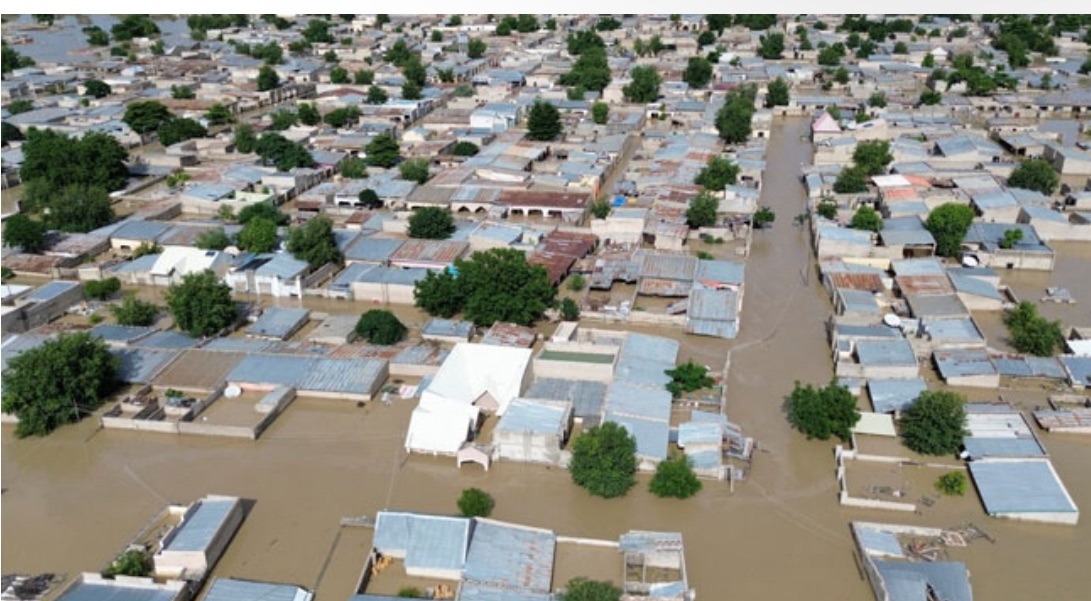
Severe flooding in the northeastern Nigerian city of Maiduguri has claimed at least 30 lives and forced 400,000 people from their homes, officials said Wednesday.
“The death toll is 30,” National Emergency Management Agency (NEMA) spokesman Ezekiel Manzo told AFP a day after water from an overflowing dam swept away thousands of homes in the capital city of Borno state.
“The situation in Maiduguri is quite frightening,” said Manzo’s NEMA colleague Zubaida Umar.
“The flood has taken over around 40 percent of the entire city. People have been forced out of their homes and are scattered everywhere.
“From our statistics, we have 414,000 displaced people,” Umar said. He told the BBC’s Hausa language service that officials feared that number could reach one million.
The UN refugee agency in Nigeria said on X Tuesday the flooding was the worst to hit the city in 30 years.
‘Scattered everywhere’
Maiduguri, at the epicentre of a more than decade-long jihadist insurgency, serves as the hub for the responses to the humanitarian crisis in the northeast.

The crisis was caused by the rupture of the Alau dam on the Ngadda River, 20 kilometres (12 miles) south of Maiduguri over the weekend.
According to NEMA, more than 23,000 households, and upwards of 150,000 people, were hit by the subsequent rapid rise of waters.
“We have also sent our mobile clinics with medical supplies along with medical doctors from the military hospital to attend to the displaced in the camps who need medical care,” said Umar.
“This is important because the main hospital in Maiduguri has also been affected by the flood.
“We have provided canoes and fishermen who have been going into flooded communities and rescuing residents who are trapped,” she added.
“We have deployed our water trucks to provide clean water because we are concerned about the possible outbreak of water-borne diseases.”
“I never pray for even my enemy to experience such a thing,” said one resident, Aisha Aliyu, who had managed to reach one of eight camps NEMA has opened to take in survivors.
“Nowhere to go”
Another resident, Maryam Musa, said: “I have nowhere to go,” adding that she had lost track of her relatives.
“I haven’t seen any of them, even my siblings, both young and old, and I can’t reach them on the phone. We are appealing to the governor to help us.”
